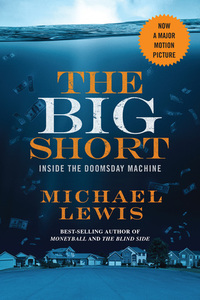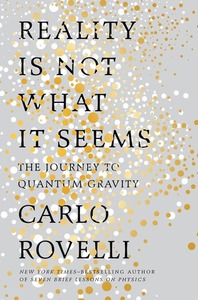Take a photo of a barcode or cover
joelc's Reviews (361)
Michael Licona, Research Professor of New Testament at Southern Evangelical Seminary, tackles the historical evidence for the resurrection of Jesus. Weighing in at 640 pages, not including Bibliography, Licona does a thorough job in laying out the reasons to believe that the resurrection took place in space and time.
He spends the first 130+ pages on how historians do history, going over the philosophies of knowledge and history. He sets his criteria for his hypothesis: 1. Explanatory scope. 2. Explanatory power. 3. Plausibility. 4. Less ad hoc, meaning no need to employ extraneous arguments. 5. Illumination.
The second chapter he addresses various historian views on the claims of miracles, which includes Bart Ehrman. Most say no. The reason why is addressed in the first chapter when Licona addresses the idea of horizons or worldview prejudicing his, the historians, reading of the facts.
Chapter three he goes over the historical evidence of the resurrection of Jesus. He spends a lot of time with the earliest reference to the resurrection in 1 Corinthians 15:3-8. He also uses non canonical writings such as the Apostolic Fathers (Clement, Polycrap) and various others (Gospel of Peter, Thomas, etc). He determines whether in them there is a line back to the teachings of the Apostles. Being fascinated by Church history, I found this the most satisfying section.
He lays out his historical bedrock for the resurrection of Jesus. The facts has to be agreed on by a, “ heterogeneous consensus of scholars”. These facts are:
1. Jesus died by crucifixion.
2. Jesus’ disciples had experiences that led them to believe that he had risen from the dead.
3. Later, Paul was converted after experiencing what he understood to be a postresurrection appearance of Jesus.
Based on these facts, and using the above mentioned criteria, he examines six hypotheses on the fate of Jesus after the crucifixion. Most are pretty crazy, which includes group hallucinations and other odd naturalistic explanations. Naturally he ends concluding that the resurrection, physical and not spiritual of Jesus, certainly happened.
I found the book quite fascinating and so well researched. The end-notes are nearly an added book itself and the best I’ve read in quite some time. Licona does an excellent job spending time addressing the various criticisms to the orthodox view of Jesus’s resurrection and alternative, naturalistic, views.
My only criticism is central to the point of the book. He often repeats that, though the resurrection is a historical fact, we can’t know WHY Jesus was raised, or who raised Him, without it being theological. From a historical aspect, this is a true statement.
In the world of biblical scholarship, the presupposition for scholars is to deny the supernatural. Though IF the resurrection happened, and I agree it did, then it happened in history. But what are you winning people to if we can’t tell them that Jesus was raised, as the New Testament says, “...for our justification.” (Romans 4:25).
We have to be careful not to fall into a trap of looking to the world for acceptance.. Or to lessen the Gospel so people will be willing to believe it. We are only called to proclaim His life, death and resurrection. If we can’t tell them that we know WHY this happened, then what’s the point?
He spends the first 130+ pages on how historians do history, going over the philosophies of knowledge and history. He sets his criteria for his hypothesis: 1. Explanatory scope. 2. Explanatory power. 3. Plausibility. 4. Less ad hoc, meaning no need to employ extraneous arguments. 5. Illumination.
The second chapter he addresses various historian views on the claims of miracles, which includes Bart Ehrman. Most say no. The reason why is addressed in the first chapter when Licona addresses the idea of horizons or worldview prejudicing his, the historians, reading of the facts.
Chapter three he goes over the historical evidence of the resurrection of Jesus. He spends a lot of time with the earliest reference to the resurrection in 1 Corinthians 15:3-8. He also uses non canonical writings such as the Apostolic Fathers (Clement, Polycrap) and various others (Gospel of Peter, Thomas, etc). He determines whether in them there is a line back to the teachings of the Apostles. Being fascinated by Church history, I found this the most satisfying section.
He lays out his historical bedrock for the resurrection of Jesus. The facts has to be agreed on by a, “ heterogeneous consensus of scholars”. These facts are:
1. Jesus died by crucifixion.
2. Jesus’ disciples had experiences that led them to believe that he had risen from the dead.
3. Later, Paul was converted after experiencing what he understood to be a postresurrection appearance of Jesus.
Based on these facts, and using the above mentioned criteria, he examines six hypotheses on the fate of Jesus after the crucifixion. Most are pretty crazy, which includes group hallucinations and other odd naturalistic explanations. Naturally he ends concluding that the resurrection, physical and not spiritual of Jesus, certainly happened.
I found the book quite fascinating and so well researched. The end-notes are nearly an added book itself and the best I’ve read in quite some time. Licona does an excellent job spending time addressing the various criticisms to the orthodox view of Jesus’s resurrection and alternative, naturalistic, views.
My only criticism is central to the point of the book. He often repeats that, though the resurrection is a historical fact, we can’t know WHY Jesus was raised, or who raised Him, without it being theological. From a historical aspect, this is a true statement.
In the world of biblical scholarship, the presupposition for scholars is to deny the supernatural. Though IF the resurrection happened, and I agree it did, then it happened in history. But what are you winning people to if we can’t tell them that Jesus was raised, as the New Testament says, “...for our justification.” (Romans 4:25).
We have to be careful not to fall into a trap of looking to the world for acceptance.. Or to lessen the Gospel so people will be willing to believe it. We are only called to proclaim His life, death and resurrection. If we can’t tell them that we know WHY this happened, then what’s the point?









